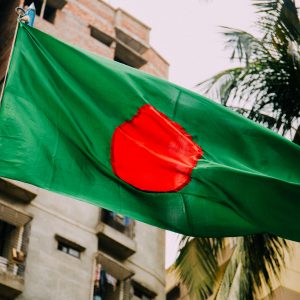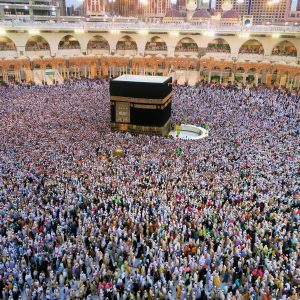Kurdish issue in Middle East: Struggle for identity and autonomy
Like the Pashtuns in South Asia, Kurds are considered devoted Muslims, a trait evident in Kurdish-majority provinces in eastern Türkiye, such as Diyarbakir and Şanlıurfa, where mosques are often packed with worshippers.
By Iftikhar Gilani
The Kurdish question, a lingering issue in the Middle East, has resurfaced following the downfall of Bashar al-Assad’s regime in Syria. While Syria is cautiously edging toward normalcy, the spotlight has shifted to its northeastern regions bordering Iran, Turkiye, and Iraq.
These areas, under the control of the U.S.-backed Kurdish-led Syrian Democratic Forces (SDF), present a complex interplay of geopolitics, ethnicity, and the enduring Kurdish struggle for autonomy.
Despite comprising approximately 10% of Syria’s population, Kurds control nearly 30% of the country’s territory, including Arab-majority towns and villages. This disproportionate territorial occupation has sparked debates among regional and international powers. While Türkiye and Arab nations advocate for a strong central government in Syria, the U.S. has been supporting a federal structure to grant autonomy to the Kurdish-led Autonomous Administration of North and East Syria (AANES).
The Kurds, often described as the world’s largest ethnic group without a state, are scattered across the Middle East and beyond, including Iran, Türkiye, Iraq, Syria, and smaller communities in the Caucasus and Central Asia. Their distinct linguistic and cultural identity, marked by dialects such as Kurmanji, Sorani, and Zaza, separates them from their Arab, Persian, and Turkish neighbors.
According to Turkish journalist Mehmet Ozturk, “the Kurds are indigenous to the Middle East, unlike the Turks, who migrated from Central Asia.” He says that Kurds have established several independent states in history, such as Mitanni, Media, Shaddadid, Botan Emirate, Hakkari Emirate, Marwanid State, Ayyubid Sultanate, and the last autonomous Kurdish state, the Republic of Mahabad in present-day Iran.
The Kurdish people have produced notable figures like Salahuddin Ayyubi, who defeated the Crusaders and conquered Jerusalem in 1187.
The Kurds’ tumultuous relationship with Arab nationalism and Turkish secularism has roots in the 20th century. Following World War I, the collapse of the Ottoman Empire left Kurds marginalized within new nation-states.
Their conflict with Arab nations began when socialist Ba’ath parties, under the banner of Arab nationalism, assumed power in Syria and Iraq. Similarly, when an extreme form of secularism was imposed Türkiye post Word War I, the Kurds revolted against it, leading to uprisings like the Dersim Rebellion of the 1930s, which were brutally quashed.
“The Kurdish issue is largely a legacy of World War I,” said Ozturk. “Kurds were the pillars of the Ottoman Empire, tasked with guarding mountainous frontiers. Post-collapse, policies toward them drastically changed.”
Like the Pashtuns in South Asia, Kurds are considered devoted Muslims. This can be observed during visits to Kurdish-majority provinces in eastern Türkiye, such as Diyarbakir and Şanlıurfa, where mosques are often packed with worshippers.
According to Ozturk, those who lead them claim to be leftists and tend to behave irreligiously to get support of the West, but the overall population of Kurds across borders have remained religious.
But it is ironic that due to rivalries they face in Iran, Iraq, Syria, and Türkiye, this ethnic group is now considered an ally of Israel and the U.S. in the region
Political representation in Türkiye
The Kurdish conflict in Turkiye intensified with the rise of the PKK (Kurdistan Workers’ Party) in the 1980s, a militant organization seeking Kurdish independence. This insurgency, combined with state repression, has resulted in over 40,000 deaths and widespread displacement.
In Syria, the Kurdish plight gained international attention during the civil war, as they aligned with the U.S. to combat ISIS, subsequently establishing control over vast territories.
Türkiye views the rise of Kurdish forces in Syria as an existential threat, equating the YPG (People’s Protection Units), a key component of the SDF, with the PKK.
In response, Türkiye has launched multiple military operations, including Operation Euphrates Shield (2016) and Operation Peace Spring (2019), to create buffer zones along its border and curb Kurdish advances.
Meanwhile, Israel’s strategic interests in the region have positioned it as a covert ally of the Kurds. By supporting Kurdish autonomy, Israel aims to destabilize adversaries like Syria, Iran, and Türkiye. Experts suggest that Israel’s long-term strategy includes extending Kurdish autonomy to Druze-dominated areas in the Golan Heights, thereby altering the region’s demographic and security dynamics.
Under the name People’s Equality and Democracy Party (DEHAP), Kurds control the third-largest political force in the Turkish parliament. The party has 57 members in the Turkish Parliament.
Another Kurdish party, HÜDA-PAR, which represents Islamist Kurds, has four parliamentarians and is also known as Türkiye’s Hezbollah.
When Recep Tayyip Erdoğan’s AK Party came to power two decades ago, it included a significant number of Kurdish parliamentarians.
Türkiye’s current government also has several Kurdish ministers, including Vice President Cevdet Yılmaz and Foreign Minister Hakan Fidan. Currently, the party has about 60 Kurdish parliamentarians.
In the last presidential election, Kemal Kılıçdaroğlu, who gave Erdoğan a tough competition, was also Kurdish. Notably, he is an Alawite Kurd, a small minority within the community.
Interestingly, Kurds make up about 15-20% of Türkiye’s population, but their birth rate is five times higher than that of Turks. This trend is expected to significantly alter the demographic balance in the future.
Today, there are nearly four million mixed families in Türkiye where Kurds have intermarried with non-Kurds. Istanbul is now the largest city globally with a Kurdish population.
In Iraq, the Kurds have an autonomous region known as the Kurdistan Regional Government (KRG). Iraq’s current President Abdul Latif Rashid and Foreign Minister Fuad Hussein are also Kurdish. This region is dominated by two major Kurdish parties, Barzani and Talabani, which are often in conflict over influence.
Federal structure
Nilüfer Koç, spokesperson for the Kurdish National Congress Foreign Policy Committee, stated that the only solution to the Kurdish issue lies in establishing a federal and decentralized government.
In an interview, she said that Kurds do not aim to create separate territories in Iraq or Syria but seek autonomy and coexistence within a democratic framework.
Defending alliance with the U.S. and Western countries, she said this partnership prevented regional countries from carrying out genocide against Kurds.
The U.S. backing of Kurdish forces during the fight against ISIS was a turning point for the Kurdish movement. The SDF’s military prowess, underpinned by U.S. air support and arms, enabled them to dismantle ISIS’s territorial control. In return, the U.S. administration promised autonomy for the Kurds in northeastern Syria.
“The federal solution in Iraq since 2003 has provided a framework for inclusive governance,” Koç elaborates.
“Kurds in Syria have been working toward a similar autonomous administration since 2012. However, challenges remain due to external interference and regional hostility.”
Despite decades of repression, Kurdish cultural and political identity has endured. In Türkiye, Kurdish language bans were lifted in the early 2000s, and state-run media now include Kurdish-language programming.
While federal solutions like those in Iraq and Syria offer a framework for coexistence, the broader quest for Kurdish statehood remains elusive. Regional powers are unlikely to support the creation of an independent Kurdish state, fearing the precedent it would set for other minority groups.
Moreover, internal divisions among Kurds, exacerbated by external manipulation, hinder the formation of a unified front.
As the Middle East grapples with shifting alliances and power dynamics, the Kurdish question continues to haunt the region’s political landscape.
For the Kurds, the challenge lies in navigating these complexities to secure their rights and identity without alienating neighboring states or international allies.
Koç concludes: “This is not about redrawing borders but about ensuring inclusive governance and protecting Kurdish identity within existing frameworks. It’s a struggle for dignity, not division.”












